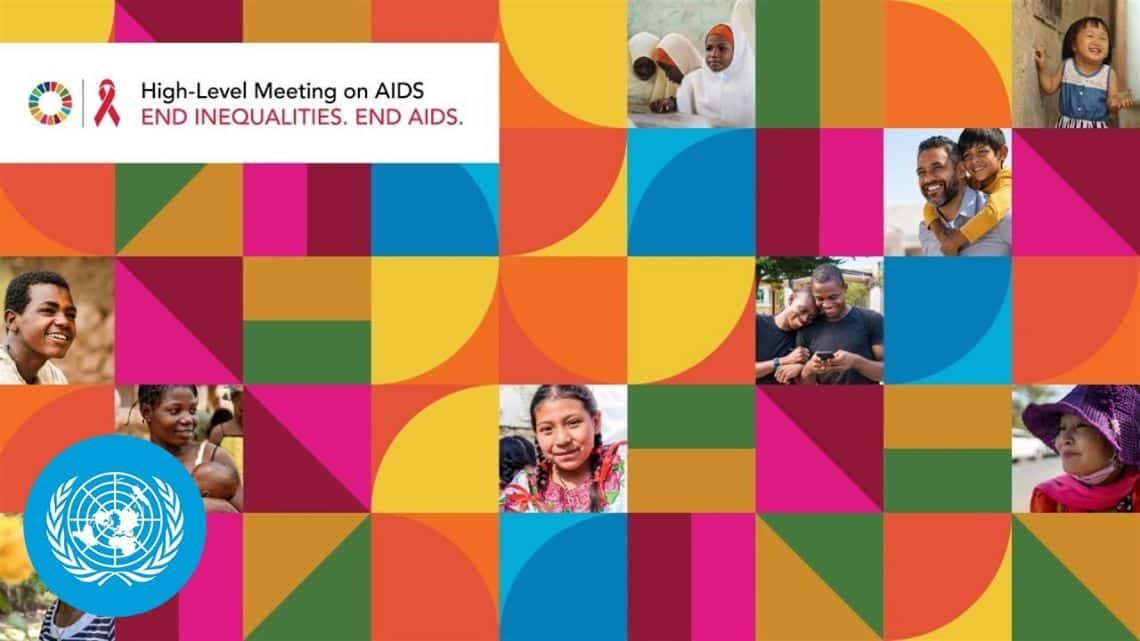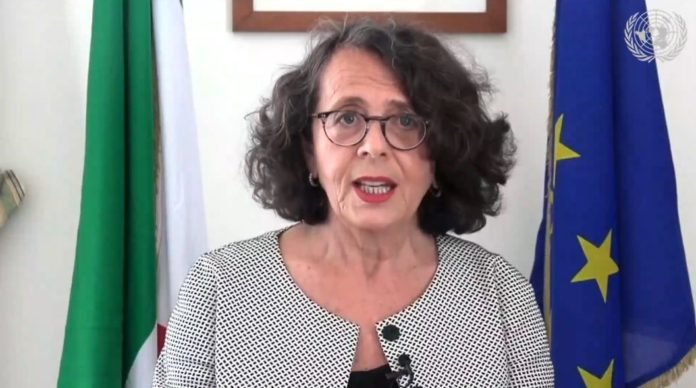NEW YORK/ROME, JUNE 12 – Medical advances in the fight against AIDS have raised hopes, but the COVID crisis has had a devastating effect on testing and treatments, so there is a need to continue investing in efforts against the disease to eradicate its root causes. With this message the Vice Minister of Foreign Affairs and International Cooperation, Marina Sereni, addressed the High Level Meeting of the General Assembly on HIV/AIDS which took place in virtual form on June 11.
“Today, with access to adequate treatment, an HIV-positive person can expect to have the same lifespan as someone who is HIV-negative. Lifesaving treatment have shed some hope. Of the 38 million people living with HIV, over 25 million receive adequate treatment.
 Today, with access to appropriate treatment, an HIV-positive person can expect to have the same lifespan as an HIV-negative person. Life-saving treatments have raised hopes. Of the 38 million people living with HIV, more than 25 million are receiving adequate treatment and this is truly a fundamental achievement,” said Sereni. However, the Deputy Minister called for increasing efforts: precisely in light of the Covid emergency, one needs to target key populations that are socially marginalized and vulnerable to HIV. Women are most at risk for economic and social reasons: “That’s why must continue to invest in gender equality and girls’ education.”
Today, with access to appropriate treatment, an HIV-positive person can expect to have the same lifespan as an HIV-negative person. Life-saving treatments have raised hopes. Of the 38 million people living with HIV, more than 25 million are receiving adequate treatment and this is truly a fundamental achievement,” said Sereni. However, the Deputy Minister called for increasing efforts: precisely in light of the Covid emergency, one needs to target key populations that are socially marginalized and vulnerable to HIV. Women are most at risk for economic and social reasons: “That’s why must continue to invest in gender equality and girls’ education.”
Moreover, since HIV challenges society to confront personal issues in an open and honest way, States need to invest in comprehensive sex education that lays the foundation for life-saving awareness and self-determination. Italy – recalled Sereni – has supported the fight against HIV/AIDS, particularly through the Global Fund’s valuable activity. At the last replenishment conference in Lyon, Italy announced its increased contribution to the Fund. Several Italian NGOs, research institutions and academia are particularly active in the field, with the communities, in the fight against HIV-AIDS.
A few days ago, on May 21, Italy co-hosted the Global Health Summit together with the European Commission in the context of the Italian presidency of the G20. On that occasion, the Rome Declaration of Principles on Pandemic Preparedness and Response was adopted. HIV/AIDS – well before the COVID-19 pandemic – has clearly revealed the interconnected nature of health security within and between nations. “This – Sereni noted, “is why multilateralism and coordination are key to achieving global health security – leaving no one behind. (@OnuItalia)

